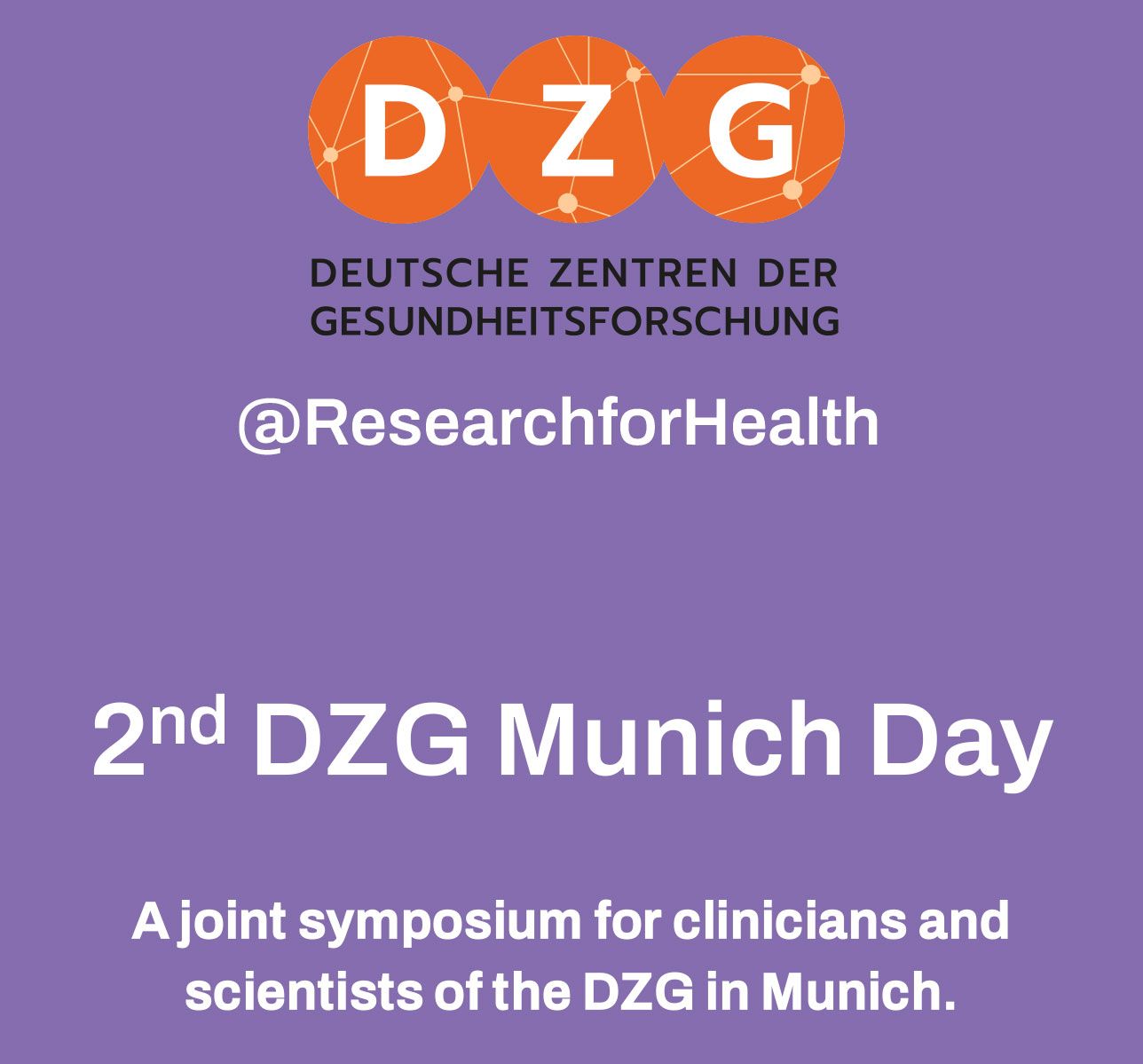11/07/2024
Print Page2nd DZG Munich Day: Together against common diseases

Many people still suffer from common diseases such as diabetes, infections, cancer, cardiovascular and lung diseases as well as neurodegenerative and mental disorders. In the eight centers for the respective widespread diseases, researchers and clinicians are working successfully to bring new results from science into practice more quickly. "The German Centers for Health Research carry out cutting-edge translational research. People benefit from this through more targeted prevention and more precise treatment," emphasizes Prof. Martin Hrabě de Angelis, current spokesperson of the DZG.
Researching together and using synergies
Although the various common diseases appear to be quite different, there are often connections that are important for the development of new therapies and research methods. The active networking of the various DZGs offers a unique opportunity to develop innovative research approaches. A special focus at the 2nd DZG Munich Day will therefore be on cooperation between the centers. Current transdisciplinary projects will be presented, including on intermittent fasting, the identification of disease causes and biomarkers or research into cross-disease changes in the protein TREM2, which drives the brain's immune cells to peak performance.
Guests from politics, science and clinics
Following last year's successful start, the DZG Munich Day is being held for the second time. The event will be opened by welcoming addresses from Thomas Romes (Department of Life Sciences, Federal Ministry of Education and Research (BMBF)), Markus Blume (Bavarian State Minister of Science and the Arts), Matthias Tschöp (CEO, Helmholtz Munich), Stephanie E. Combs (Dean, TUM School of Medicine and Health) and Markus M. Lerch (Medical Director, LMU Klinikum). The work of the DZG will then be presented. The DZG's research in Munich will be presented by the site speakers.
Actively involving sick people
Patients are playing an increasingly important role in research. Their experiences and perspectives on living with a disease can provide valuable input for researchers. At the event, the DZG will present how they actively involve patients in their work (patient participation).
Poster Awards: Best posters are honored
The extensive program also includes posters presenting the latest results. This gives young talents the opportunity to present their research and talk to other researchers. The best three posters will receive awards.
The aim of the 2nd DZG Munich Day is to further expand cross-DZG exchange, strengthen existing collaborations between the various DZGs in Munich, establish new contacts and make even better use of synergies.